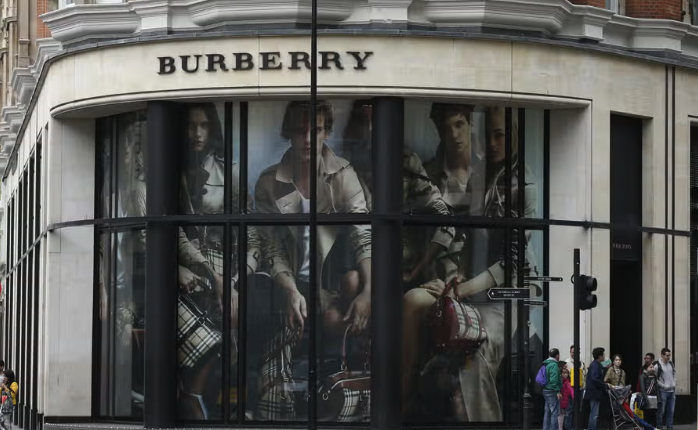Burberry, the emblematic British luxury retailer, synonymous with its iconic trench coat and tartan pattern, is teetering on the precipice of an ignominious exit from the FTSE 100. The prestigious index, often considered the bellwether of British corporate titans, may soon no longer feature this enduring symbol of British fashion as it grapples with financial headwinds within the luxury market.
Challenges in the Luxury Sector
The luxury sector has been experiencing a tumultuous period, with numerous economic pressures weighing heavily on even the most renowned brands. Burberry has not been exempt from these challenges. The company’s recent financial disclosures highlighted dwindling sales and shrinking profit margins, exacerbated by a cocktail of factors including:
- Inflationary Pressures: The cost of raw materials and labour has soared, pinching profits.
- Currency Fluctuations: Volatile exchange rates have adversely affected international earnings.
- Changing Consumer Behaviors: The modern consumer’s preference for experiential luxury over traditional luxury goods has reshaped spending patterns.
- Global Economic Slowdown: Sluggish economic growth in key markets such as China and the United States has tempered sales.
Relegation from FTSE 100
While Burberry’s challenges are not entirely unique within the luxury market, what sets its current plight apart is the looming spectre of relegation from the FTSE 100. Several financial analysts have posited that a demotion from the index could further exacerbate investor skittishness, potentially triggering a downward spiral of share prices and market confidence.
A FTSE 100 relegation often sends out a ripple effect, signalling perceived instability and ushering in a more cautious stance from institutional investors. The subsequent diminished market capitalisation could fuel speculation and invite takeover bids from opportunistic rivals, further destabilising the company.
Historical Context
To fully appreciate the gravity of Burberry’s current position, one must take a step back and consider its illustrious history. Founded in 1856, Burberry has long been a bastion of British craftsmanship and innovation. The company revolutionised rainwear with its breathable and waterproof gabardine fabric in the 19th century, and since then, has ascended the echelons of the fashion world to become a global luxury heavyweight.
Yet, in recent years, Burberry has faced a slew of internal and external pressures. A revolving door of top executives and a series of strategic missteps—such as the discontinuation of their perfume line and lacklustre performance of their accessories—have somewhat tarnished its sheen.
Steps Toward Recovery
Notwithstanding these daunting challenges, Burberry has embarked on several initiatives aimed at reversing its fortunes. CEO Marco Gobbetti, who took the helm in 2017, has plotted an ambitious course to revitalise the brand.
In a recent statement, Gobbetti expressed cautious optimism, emphasising that these transformative measures are already beginning to yield dividends. He highlighted double-digit growth in key Asian markets as well as promising early returns from their revamped e-commerce platform.

A Positive Outlook
While the road ahead is undoubtedly strewn with challenges, it would be unwise to bet against a storied brand like Burberry. With a strategic vision in place and a renewed focus on innovation and market expansion, there are reasons to believe that Burberry can weather this storm.
Indeed, the potential relegation from the FTSE 100 may serve as a wake-up call, galvanising the company to double down on its strengths and reinvigorate investor confidence. After all, in the world of high fashion, it’s not just about weathering the storm but stepping out of it, looking more elegant than ever.
In summary, while Burberry’s moment of reckoning looms large, the company’s resilient heritage and strategic foresight offer a glimmer of hope. The coming months will indeed be pivotal, but if history is any guide, Burberry has the nous and artistry to turn things around.